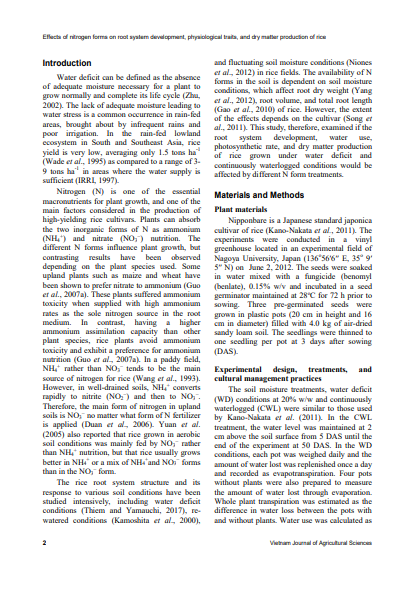Vol 3 No 3 (2020): Vietnam Journal of Agricultural Sciences
Starting in 2018, VJAS is set to launch a full English version of VJAS and publish quarterly both online and in print with the ISSN 2588-1299. Each issue will contain 5-10 articles, with each article being approximately 5000-8000 words. All submissions will be independently refereed by editorial board members and will undergo rigorous peer-review following international standards from at least two assigned peer reviewers (including one Vietnamese reviewer and one foreign reviewer) who come from universities and research institutes in Vietnam and other countries around the world. The aim of VJAS is to be indexed in ISI/Scopus lists within four to six years from its first published issue (September 2018).
The English version of VJAS is devoted to publishing papers, both scientific articles and reviews or mini-reviews, from all areas related to agriculture disciplines, especially those focusing on crop science, plant protection, animal science, veterinary medicine, aquaculture, agricultural mechanical and electrical engineering, soil science and plant nutrition, ecology and environment, biotechnology, food technology, economics and rural development, and information technology in agriculture, etc.
DOI: https://doi.org/10.31817/vjas.2020.3.3
Published: 2021-03-12


